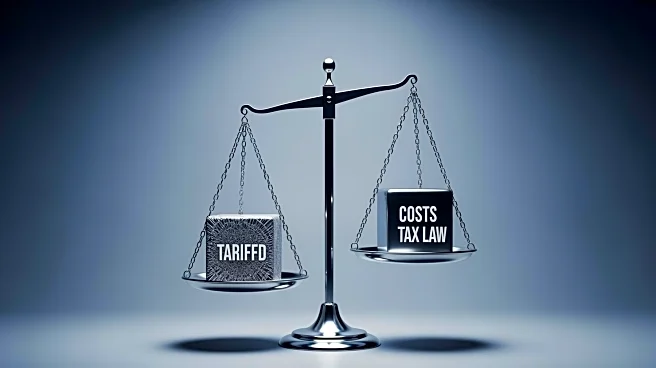What's Happening?
The Supreme Court is set to hear arguments on whether President Trump lawfully imposed sweeping global tariffs, a case with significant implications for presidential power and economic policy. The tariffs, enacted
under the International Emergency Economic Powers Act (IEEPA), have been challenged by small businesses and states, arguing they exceed the powers granted by Congress. The case centers on the constitutional separation of powers and the extent of executive authority in regulating international trade. The outcome could redefine the balance of power between the presidency and Congress in economic matters.
Why It's Important?
This case represents a critical test of executive power, particularly in the context of trade and economic policy. A ruling in favor of the administration could expand presidential authority, allowing future presidents to impose tariffs without congressional approval. Conversely, a decision against the tariffs could reinforce congressional control over trade policy, impacting how the U.S. engages in international commerce. The broader implications include potential shifts in global trade dynamics and the precedent set for executive actions in other policy areas. The decision will also influence the legal landscape for future challenges to presidential authority.








